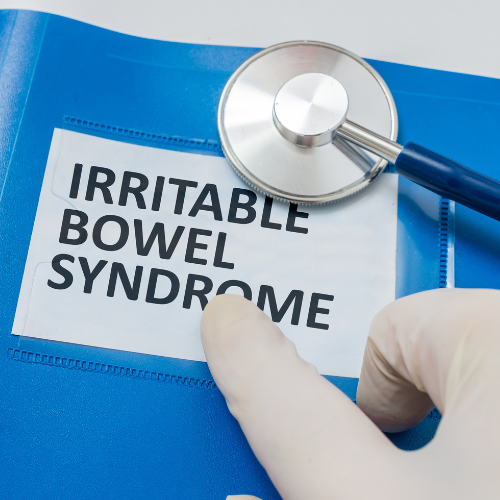Irritable Bowel Syndrome (IBS) is one of the most common gastrointestinal disorders, affecting an estimated 10-15% of the global population. This condition involves a combination of symptoms that can significantly impact an individual’s quality of life. This introductory post will provide a comprehensive overview of what IBS is, how it is diagnosed, and the common symptoms associated with the syndrome.
What is IBS?
IBS is a functional disorder, which means it is related to problems with how the gut works, and is not attributable to any observable structural defects in the intestines. Unlike more serious conditions like ulcerative colitis or Crohn’s disease, IBS does not change bowel tissue or increase the risk of colorectal cancer.
Diagnosing IBS:
The diagnosis of IBS often involves a process of elimination. Physicians typically start by ruling out more serious conditions through tests such as blood tests, stool tests, and sometimes colonoscopies. The diagnosis is then made based on the Rome IV criteria, which focus on symptoms such as abdominal pain that occurs at least one day per week in the last three months, associated with two or more of the following factors:
- Improvement or worsening with defecation
- A change in stool frequency
- A change in stool form or appearance
Common Symptoms of IBS:
- Abdominal Pain and Cramping: This pain typically occurs in the lower abdomen or the entire abdomen but is less likely to be in the upper abdomen alone. The pain usually decreases following a bowel movement.
- Altered Bowel Movements: This includes constipation, diarrhea, or a combination of both, often referred to as mixed or alternating IBS.
- Gas and Bloating: Many people with IBS report excessive gas and bloating, which can be embarrassing and uncomfortable.
- Food Intolerance: Many individuals find that their symptoms worsen when they eat certain foods. Common triggers include chocolate, spices, fats, fruits, beans, cabbage, cauliflower, broccoli, milk, carbonated beverages, and alcohol.
- Fatigue and Difficulty Sleeping: These are not digestive symptoms but are often reported by those suffering from IBS, impacting their overall well-being.
Conclusion:
Understanding IBS is crucial for managing symptoms effectively. By recognizing the nature of the disorder and the factors that exacerbate symptoms, individuals can better control their condition and improve their quality of life.
Further Reading:
